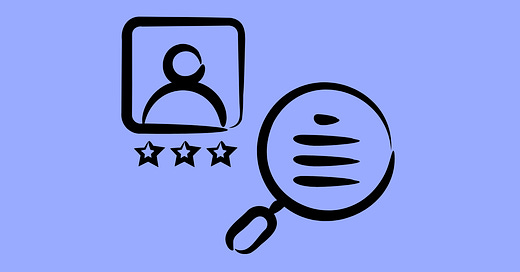Dear Job Seekers: Please be careful with the data you share
You don't know what happens to it once you click "Apply"
*NOTE: Last week, it was reported that the “Mother of all breaches” (MOBA) had happened, with nearly 26 billion usernames, passwords, and more being leaked. Some of the most popular services that were affected included Twitter, Canva, LinkedIn, Adobe, and MySpace. With all of this data being exposed, anybody can find and use it to hack your accounts. If you use any of the services that were affected, please change your passwords IMMEDIATELY!
Job seeking is a pain in the ass. From curating resumes and cover letters to having to possibly go through six rounds of interviews, trying to find a job in this competitive environment to survive is difficult. Add in the fact that if you find an ad online, it might not exist; it could either be a scam or companies are putting them up to see who applies and have a list of ready applicants.
As shown, job seeking is a nightmare. But what isn’t really being discussed is how much information you are giving up. It’s not just your work experience and education that are being sacrificed; it’s also other personal information as well. You are giving all this to employers in hopes that you find employment.
What might be even more concerning is the retention of your data. With the General Data Protection Regulation (GDPR) law in the EU, it’s stated how long you can keep the information of applicants. In the U.S., because of weak data privacy laws, it is essentially up to companies and the states as to what happens with the data. It is unknown how long companies keep your information, as it depends on policies, but even then, they might keep it longer than necessary.
As a result, you need to be careful with the information that you put on your application. Here are some tips to get you started on how to protect your privacy when applying:
Create a separate email address or use an email alias - Using an email address that is specifically used for jobs allows you to control which address you want to be contacted at and can reduce any spam mail you get from them. It’s also easier for organizational reasons as well. If you don’t want to create a new email address, then I highly recommend using an email alias instead. What’s nice about aliases is that they forward to your main email, and if you realize you are getting too much spam, you can disable it anytime.
Don’t list your phone number - The reality is that no one is going to pick up a phone from a random number, especially with scam calls being all too common. Your email is more than enough contact information for them to reach you. Any exchange of phone numbers should happen once you get a follow-up. However, if you are adamant that you leave a number, then I highly suggest you get a second phone number or use phone masking so they at least don’t have your personal one on file.
Don’t list your home address - Unfortunately, I have been guilty of doing this in the past. Many times I put my full address, oblivious to the fact that A.) It’s a privacy concern and B.) It’s none of their business where I am located, especially at the application phase. Personally, I wouldn’t even put the city and state I’m residing in; however, if they are asking for it, it’s certainly better than putting your mailing address down.
You can find more tips and viewpoints on how to better protect yourself below. I wish all job seekers good luck and fortune in finding employment that meets your wants and needs! Got any tips to share? Feel free to leave them in the comments.
Until Next Time,
Monique 🔏
I also discussed a little about this topic on my blog. If you are interested in reading that post, click on the button!
Additional Links:
https://www.linkedin.com/pulse/5-ways-protect-your-privacy-during-job-search-emily-worden--tquhe/?trk=article-ssr-frontend-pulse_more-articles_related-content-card
https://www.job-hunt.org/article-privacy-protection-methods/
https://www.washingtonpost.com/technology/2022/02/17/employment-history-verification-salary-how-to-negotiate/
https://jobseekers.workable.com/hc/en-us/articles/360033720193-How-do-I-delete-my-personal-data
https://www.hiregy.com/how-to-protect-your-personal-data-when-applying-to-jobs/
https://www.onrec.com/news/news-archive/5-tips-to-protect-your-data-privacy-while-job-hunting
Thanks for reading The Privacy Cloud! Subscribe for free to receive new posts and support my writing.





